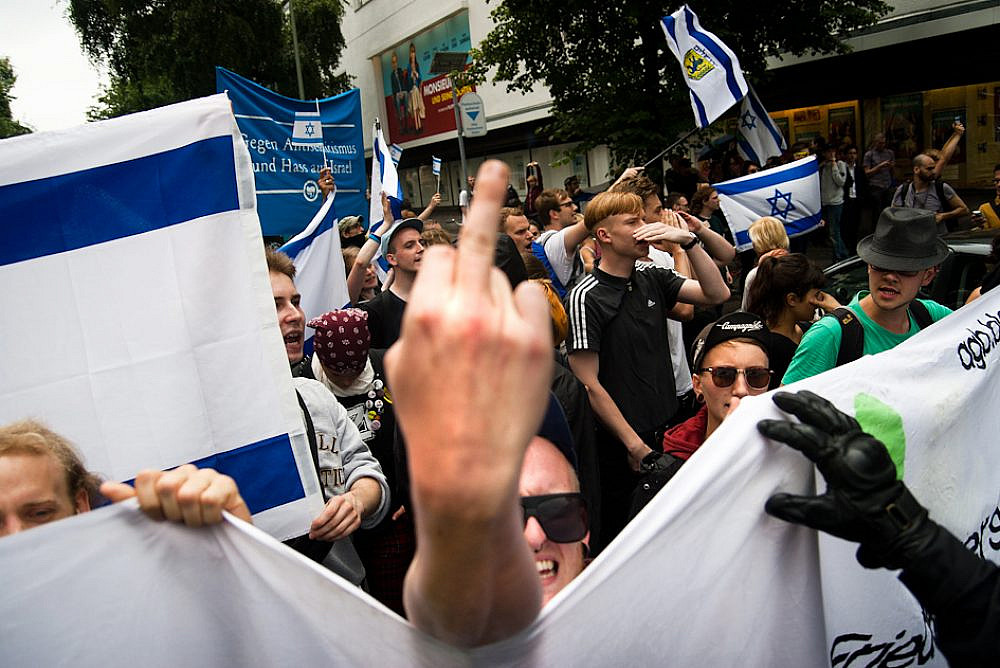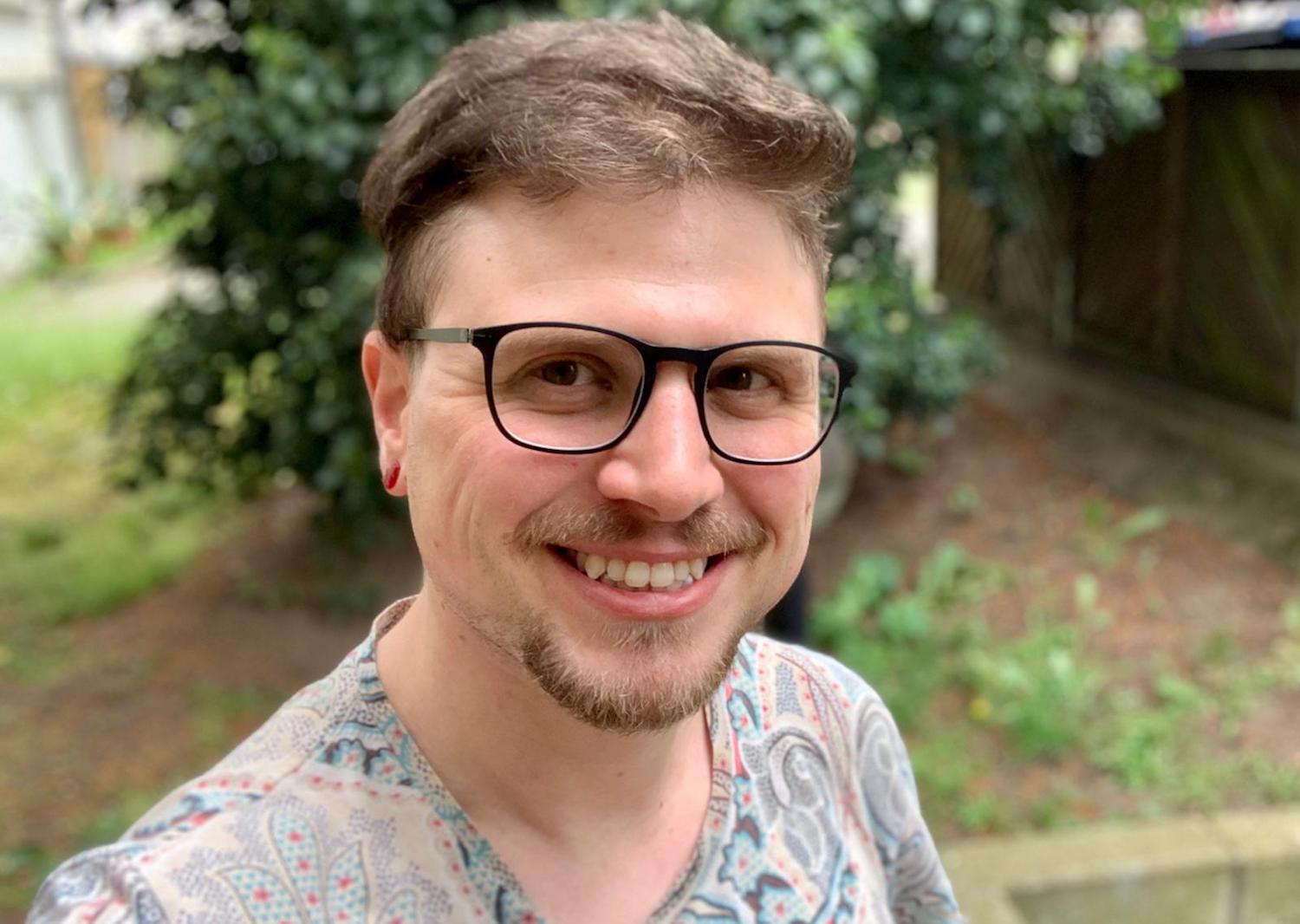When Michael Sappir moved to Leipzig, Germany, in 2019, he knew he wanted to get involved in the local left-wing scene. But as a Jewish Israeli who spent years taking part in activism against the Israeli occupation back home, he was surprised to discover that being a leftist in Germany often meant giving fealty to the State of Israel and contributing to vicious attacks on supporters of the Palestinian cause.
Those attacks in the city, he says, had mostly come from activists associated with or inspired by “Antideutsch,” a movement which has historically been part of Germany’s radical left yet which unconditionally sides with Israel. For Sappir, the dissonance between the German left’s purported values and their skewed stance on Palestinian rights needed to be addressed.
That is why Sappir, a writer who is pursuing his degree in philosophy and has contributed to +972 Magazine, helped establish a new network of left-wing Israeli Jews in Germany called “Jewish Israeli Dissent in Leipzig – JID,” which provides a space for Jewish activists to show solidarity with Palestinians to challenge Germany’s unquestioning support for Israel.
I spoke to Sappir once before the violence that erupted in Israel-Palestine in May, and again a month after, about the founding of JID, the pernicious influence of Antideustch, Germany’s muzzling of Palestine activism, and organizing alongside Palestinians in Leipzig.
This interview has been edited for length and clarity.
Who started the Jewish Israeli Dissent in Leipzig activist network?
I formed the group with a few other Jewish Israelis, most of whom were politically active in Israel. It started last summer after an incident with the local project of a feminist collective, where one floor of the building [where they are headquartered] is meant for BIPOC and migrant women and the other floor is for everybody — mainly white Germans. Basically, a Syrian woman refugee was accused of antisemitism because she was critical of Israel. There was a big drama, which included threatening behavior against her. It ended with a lot of the migrant women leaving.
The pro-Israel side got its way and scared away the people who wanted to speak up about this. There was a decision in the house not to talk about Israel and antisemitism. Some of us heard about this and were horrified.
So, in July 2020, we decided to organize an evening called “Ask us Anything.” It was organized especially for Germans to hear the perspective of the Israeli left. We then decided that we needed something to be ongoing, including a website and a name that we could put out responses to things happening in the city.
How many members are in your network? Can anyone join?
We are currently six members. The network is open to anyone who grew up in Israel and agrees with our principles. In Israeli terms, it means a left perspective that is comfortable with looking critically at Israeli history. If new members want to join, they can’t say that everything was good up until 1967 [the beginning of Israel’s occupation of the West Bank, Gaza Strip, and Golan Heights]. We are very critical about what happened before that.
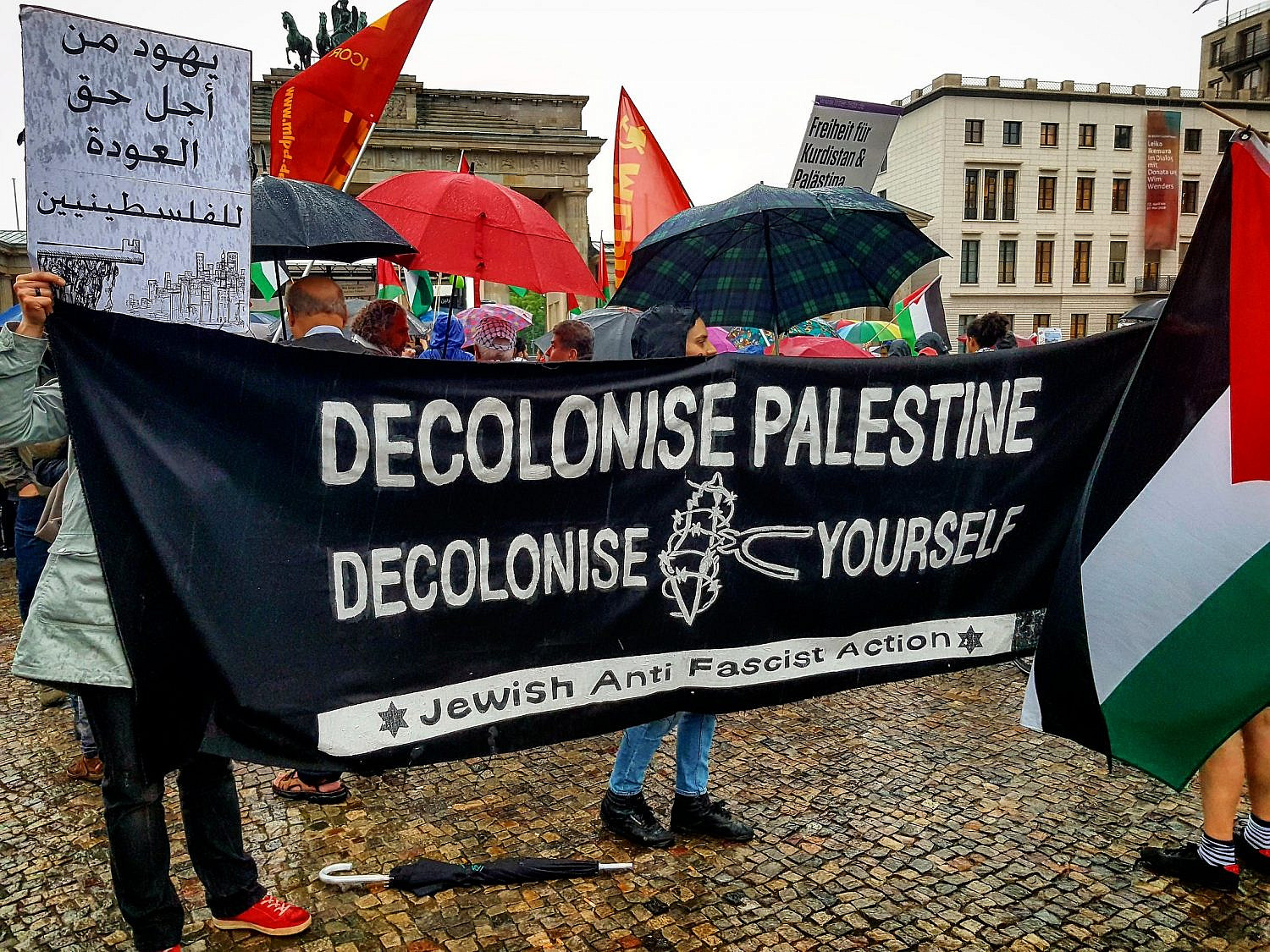
Choosing the name “JID” sounds like a re-claiming of the word “Yid,” a historically offensive nickname for Jews in East Europe and Russia.
We had a lot of discussion about this. Yes, it was an intentional reclaiming, but we realize that actually few different interpretations have come up with the term. There is the Eastern European word “yid” — which in some countries is a neutral way of saying “Jew” and in other countries is an antisemitic slur — which we did not have in mind. In English-speaking countries where Yiddish speakers arrived, they called themselves “yid,” but that would also [later] become a pejorative term for Jews. In Germany itself, Yiddish speakers referred to themselves as “yid,” yet German speakers today have never heard that term before. We decided that we are okay with reclaiming it.
What are the main goals of the organization?
We are trying to open up space for voices like ours and people like us, and especially for Palestinians, because we see that there is very little space to talk about these issues from a critical perspective. It is also a matter of empowering ourselves and others, because the left in Leipzig is [associated with] the Antideutsch movement. It can be very isolating. When I came here, I wanted very much to be involved [with the left] but couldn’t because there were too many Israeli flags.
What is Antideutsch?
Antideutsch is a movement that comes out of the German radical left that is focused on unconditional support for Israel. In Leipzig they are kind of fanatics. Some of them aren’t even involved in the left anymore. Most of them are seen as part of Antifa. And just as Antifa opposes Nazis, Antideutsch-Antifa tries to use the same tactics against anyone who they see as questioning Israel.
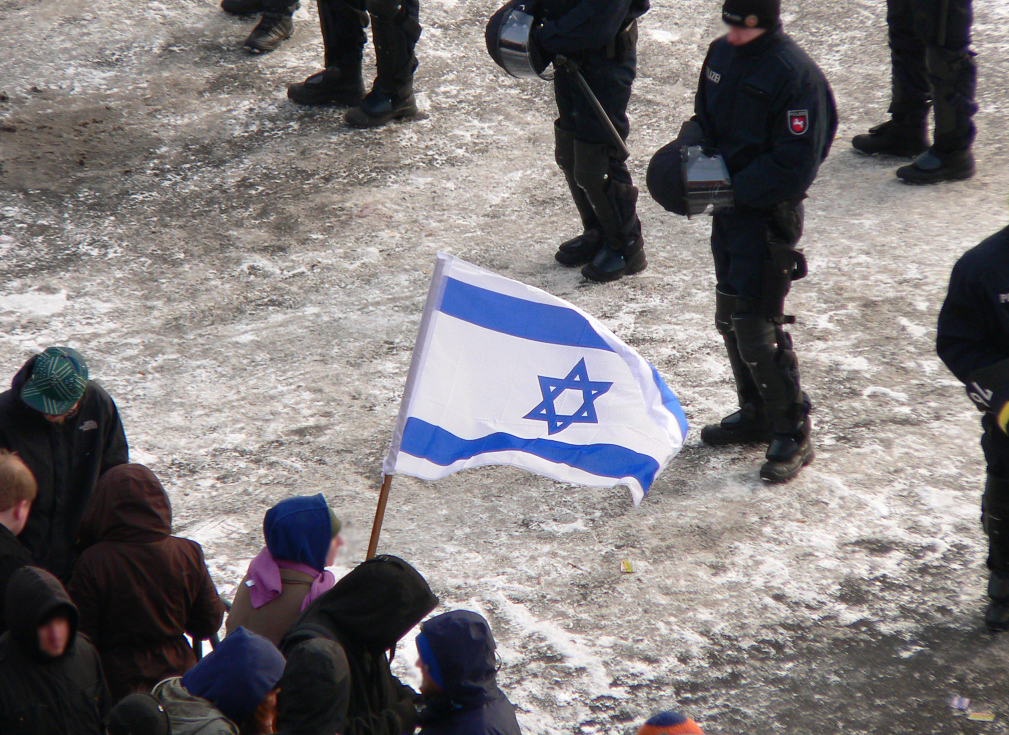
Antideutsch-dominated antifascist groups oppose Palestinian solidarity in the same way they would oppose neo-Nazis: they document everything they do, sometimes threatening them individually, trying to block demonstrations, mobilizing leftists for counter-demonstrations. They spend a lot of time making accusations against solidarity activists online and “explaining” [often with hasbara talking points] why this or that person or group is a dangerous antisemite.
Are they affiliated with any party?
There are Antideutsch tendencies in all parts of the left — it is not limited to any party or movement. Actually, very few people today consider themselves Antideutsch: some call themselves “ideologiekritisch” [critical of ideology], and there are even more who are influenced by their ideas but not explicitly part of their movement.
How do non-Zionist Israelis and Palestinians in Leipzig deal with them?
In Leipzig, Palestinians and people in solidarity with them have had a hard time even protesting in public. Antideutsch groups have managed to bully them into silence. But now there is a feeling that they are losing their strength, and the demonstrations during the recent escalations in Israel-Palestine really made this clear — the Palestinian demo was twice as big and much more energetic than the pro-Israel counter-demonstration. In JID, we are trying to be part of this change by making our critical Israeli perspective public, and by making it clear that these “pro-Israel” people do not speak for us, and we do not accept what they say about our home country.
How have things in Leipzig changed since the escalation in Gaza?
We very quickly started to become active in May. First, we made a solidarity statement (in German and in English) about the situation. We noticed immediately that it was being sent around in activist circles and on social media in Leipzig. People discussed it — not only positively, we also got a lot of negative reactions from Antideutsch activists. But what was important was that it was being talked about.
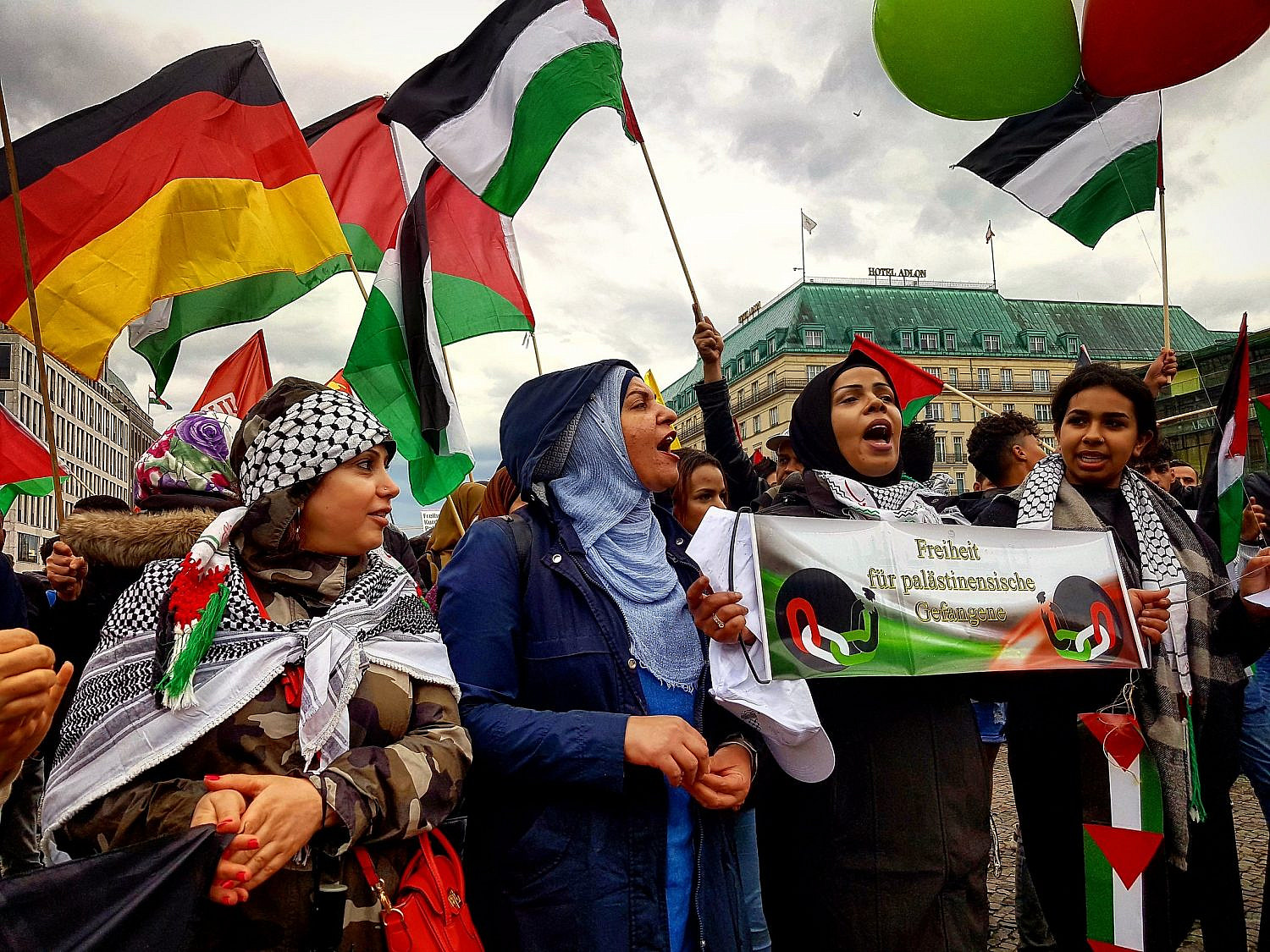
What was your role as an activist group in the demonstrations supporting Sheikh Jarrah in May?
We heard about two demonstrations that were being planned in Leipzig. One demonstration was of a few Palestinians who were organizing in solidarity with Sheikh Jarrah; some of us were talking about going there. Then we saw that there was a counterprotest being organized under the name “Against antisemitism: Solidarity with Israel.”
We in JID decided that we had to respond. Everybody in our group was previously involved with the struggle in Sheikh Jarrah, and it was also very important to our family members [living in Jerusalem] to protest together in solidarity with the neighborhood. This struggle was very personal to us and we felt very insulted by the idea of calling this struggle “antisemitic,” so we released a statement under the provocative title “The rally in solidarity with Israel has nothing to do with solidarity.”
How did your statement and involvement influence these protests?
The next day, there were two demonstrations in Augustusplatz in central Leipzig. We got very good feedback from German leftists and other leftists who have been living in Germany for a long time. They told us that our statement changed the mindset of people who [originally] wanted to come to the Israeli demonstration, but decided to stay home after reading our statement.
There was much more energy and twice as many people in the Palestinian demonstration. It was a very good experience. It felt like coming home to a place that is very familiar. There was contact between some of us and the organizers. The organizers later stood on the stage and announced that there was a group of Israeli Jews who had come to the demonstration, and that they were very happy to welcome us and happy that we were with them. They made it very clear that they don’t have a message against Jewish people, but they are against the actions of Israel.

At first JID refrained from working with other groups. What made you change your decision and start to work with Palestinian groups in Leipzig?
Before May, we told ourselves we would not collaborate with other groups. But as soon as the [violence] in Israel-Palestine was happening, it was clear to us that we should collaborate with Palestinians groups. We are here to [be in] solidarity with them. We want to be struggling together with Palestinians. That felt very natural and right.
Do you believe that Israeli Jewish solidarity in Leipzig can stop the witchhunt against BDS [Boycott, Divestment, and Sanctions] supporters in Germany?
It easy for us to focus on these small things like Antideutsch because we are often in the same spaces with them. But all of these things represent something much bigger. They are very much in line with the politics of the German government, and they reflect the BDS Bundestag resolution that took place two years ago [In 2019, Germany’s parliament passed a symbolic, non-binding resolution designating the BDS movement as antisemitic.]
We think that part of the problem is that the whole discussion about Israel-Palestine is happening in a vacuum without the perspectives of Israelis and Palestinians. There is something very cynical and sick about mainstream thinking in German society about Israel-Palestine. Germans will say, “The people who are responsible for antisemitism are foreigners.” They like to see themselves as enlightened and not antisemitic. But this is paradoxical because when they focus all of their efforts on Israel, they are also saying that the place for Jewish people is not here. It’s one thing to be okay with Israel, but it is another to say that Israel is the only answer to antisemitism, which means we cannot get rid of antisemitism in Germany and that the only solution is for Jews to go far away from here.
Why are Germans afraid to listen to critical voices?
I get the impression that Germans like to see themselves as objective spectators. They are putting the world in order, even if just in theory. As soon as they come into contact with people who are living the reality over there, these theories fall apart. Our voices threaten the kind of order they have created in their minds, their political positions, and their ability — individually and collectively — to say, “we have learned from the Holocaust, we are a better nation, we are the best at being friends to the Jews.”
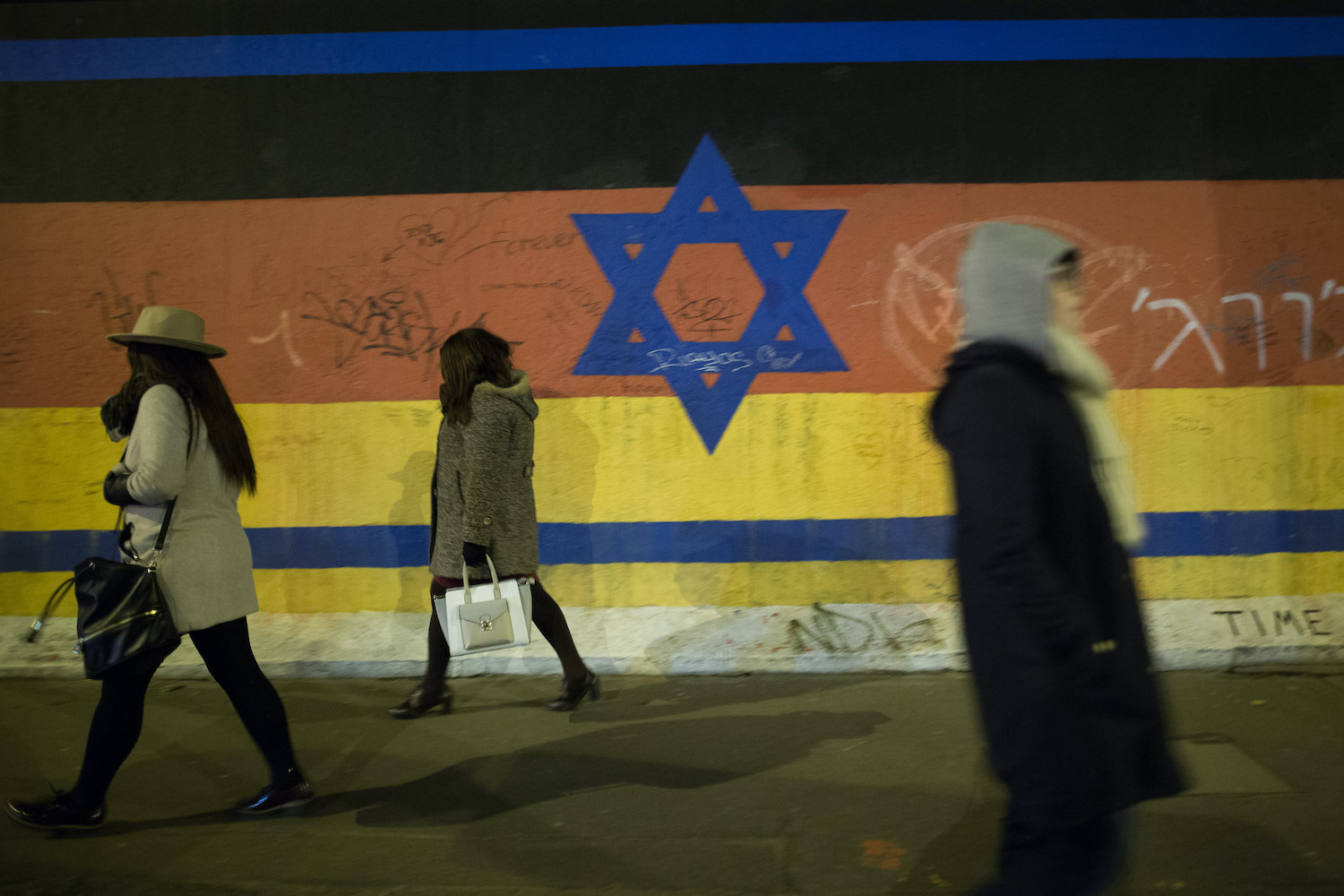
They believe they are so conscious about human rights, but as soon as they hear about the inhuman things that Israel is doing, it threatens their identity, their self-understanding, and their ability to present Germany as the leading force on the progressive stage. Germany exports large numbers of weapons and is involved in all forms of oppressions and [foreign] interference in poor countries.
By placing the Israeli-Palestinian issue above all others, as it often does, the progressive camp in Germany undermines the possibility for effective progressive politics in the country. We keep hearing about how this issue is being used to split the left, including just a few days before the annual May Day demonstration in Berlin. The whole demonstration was portrayed as antisemitic because Palestinians were involved.
Germans are reluctant to take part in any boycott of Israel because of historical German memory. How do you relate to that?
I understand why Germans have a hard time with the idea of boycotting a state that calls itself the “Jewish state.” But I really wish they would understand that this isn’t about them. I wish they would see BDS as a Palestinian issue and support the Palestinian cause, simply because Palestinians deserve support, and that the things being done to them could be done to any other people.

